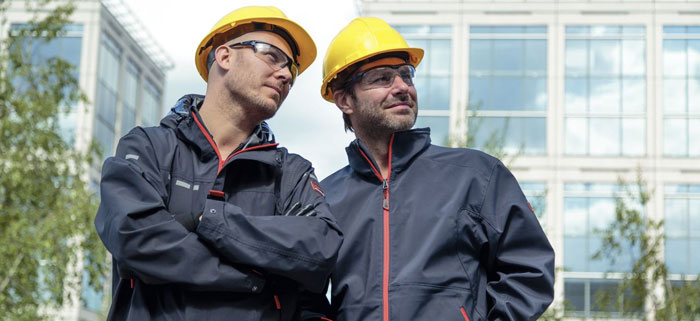Face Piece RPE: The need for advanced forms of RPE (Respiratory Protective Equipment) has drastically increased. Due to the Coronavirus pandemic, masks and face coverings have become essential everywhere you go; but which one do you buy?
In this guide, we’ve broken down the different FFP ratings, which stand for ‘Filtering Face Piece’, whereas the number denotes the level of protection.
It’s also worth noting that these ratings also outline Face Piece RPE suitability for ‘Occupational Exposure Limit’ (OEL) and their ‘Assumed Protection Factor (APF). It’s important to be aware of these acronyms while researching which masks will be most suitable for your needs.
FFP1
The most affordable variant of these three, FFP1 Face Piece RPE masks will protect against low levels of dust, and solid/liquid aerosols. Quite prominent in the construction industry, this rating is well suited to protect against non-toxic particles; ideal for use while sanding, drilling and cutting on site.
As this is on the lower side of the spectrum, this rating provides the least amount of filter material, and accordingly defence. Regarding OEL and APF, FFP1 can accommodate up to 4 times the concentration exposure limit, with a minimum of 80% filtering functionality.
Although the materials FFP1 filters against aren’t toxic, they can damage the airways and cause adverse long-term damage; it’s recommended to use a higher FFP rating if you work with any substances outside the list below.
Resistant against:
- Brick dust
- Cellulose
- Cement
- Coal dust
- Gypsum
- Limestone
- Plaster of Paris
- Pollen
- Sugar
FFP2 Face Piece RPE
Next on our list, FFP2 Face Piece RPE masks are considered the intermediate options, able to tackle moderate levels of dust and solid/liquid aerosols, as well as protect against hazardous mists, particulates and fumes.
As devices with this rating offer greater breathing resistance, it’s quite common for them to feature an exhalation valve. This benefits the user by improving overall comfort and minimising the build-up of heat inside the mask.
Built for working environments, this solution is well suited for those that work in the metal and mining industry or where hazardous particles can be found in the breathing air. Without the right conformance, workers in these environments can develop lung cancer and Tuberculosis (TB). Masks of this rating have an OEL 12x limit, and APF 10x; additionally, they filter at least 94% of airborne particles.
Resistant against:
- Brake dust
- Cotton dust
- Granite dust
- Hay
- Lead dust/fumes
- Softwood dust.
FFP3 Face Piece RPE
Lastly, FFP3 masks offer the most comprehensive levels of protection, designed to work against fine toxic particulates. As masks with this rating contain extra-thick filter material, an exhalation valve is fitted as a standard.
This is especially useful for those that work in the chemistry and pharmaceutical industry, due to the usage of contaminants and hazardous materials. Substantially higher than the previous ratings, FFP3 is effective against materials concentrations up to 50x OEL or 20x APF, filtering out 99% of airborne particles.
With our current COVID-19 climate, it’s recommended to use this rating to protect against the Coronavirus and the inhalation of other harmful pathogens.
Face Piece RPE Are Resistant against:
- Asbestos
- Bacteria
- Viruses
- Radioactive particles
There you have it; ensuring the right conformance is in place reduces any respiratory-related issues in the workplace and protects your fellow workers. After all, seemingly small breathing issues can drastically snowball and cause irreparable damage, which is why it’s important to be proactive.
For example, we’re currently supplying reusable civilian face masks, which will be a useful precaution for use in transport and closed public spaces, though FFP3 face masks are still the best prevention against COVID-19.
Hopefully, this breakdown has helped you to understand what mask rating would be most suitable for the job you’re doing. If you would like to chat with a specialist or know more about our respirators range/stock availability, give us a call on +44 (0)2920 759 683 or email info@www.rockallsafety.co.uk.





